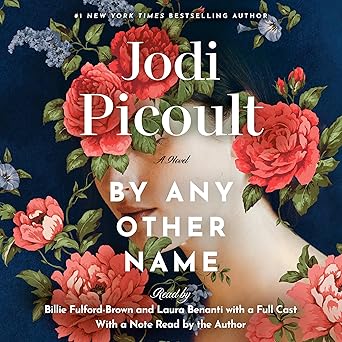Melina Green is writing a play about her ancestor Emilia Bassano. In the 1580s, Emilia was raised and schooled by English aristocrats. At age 13, she is forced to become mistress to the Lord Chamberlain. She writes plays and poetry, but, as a woman, she cannot get her writing published. Instead, she collaborates with William Shakespeare, an aspiring writer who lacks talent; he buys her plays and poems, takes credit for them, and rises to fame. Emilia finally finds a publisher for her poetry and becomes the first woman to be published. Or is she? In the present day, Melina’s male friend submits her play to a contest, and Melina convinces him to temporarily take credit for writing the drama. That fiction takes on a life of its own until the truth is revealed. The storyline alternates between Melina and Emilia, who encounter parallel problems while striving for recognition, underlining the long struggle for equality in a male-dominated world. Unfortunately, Picoult’s novel, which is accompanied by an author’s note on her inspiration and research process, is over-long, can be repetitive, and lacks the surprise ending that tends to characterize her novel. Still, the full cast expertly breathes life into the tale.
VERDICT Despite the issues mentioned, this is still a story worth hearing.




Comment Policy:
Comment should not be empty !!!